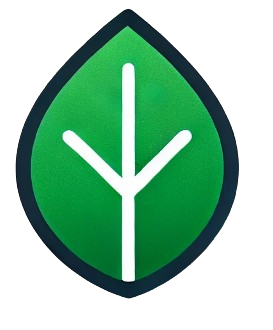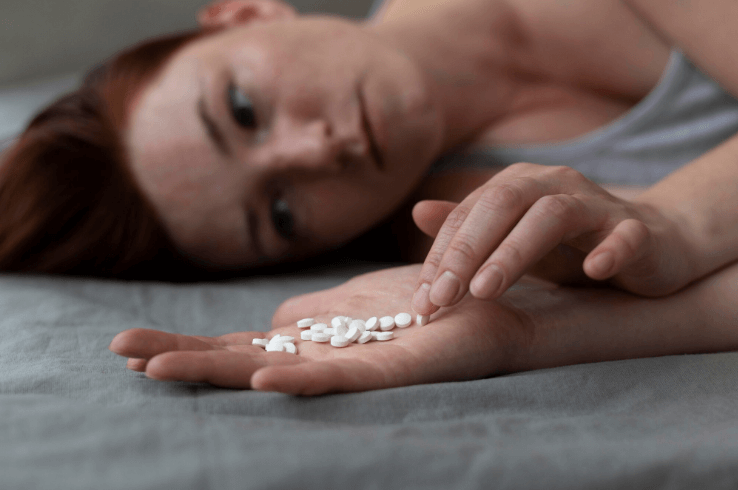Melatonin and Sleep Supplements: Everything You Need to Know
Sleeping well is essential for physical and mental health. However, many people struggle to achieve restorative sleep. In this context, melatonin and other natural supplements have become popular solutions. This article explores in detail the role of melatonin and other sleep supplements, their advantages, precautions, and associated myths.
What is Melatonin and How Can It Improve Your Sleep?
Melatonin is a hormone produced by the pineal gland, located in the brain. Its production is regulated by the natural cycle of light and darkness, peaking at night. This hormone signals the body that it is time to sleep, regulating the circadian rhythm.
Benefits of Melatonin:
- Promotes Sleep: Ideal for those suffering from insomnia or occasional sleep difficulties.
- Helps with Jet Lag: Useful for adjusting the biological clock after traveling.
- Regulates Circadian Rhythm: Benefits shift workers or people with sleep disorders.
As a natural and relatively safe solution, melatonin has become widely used as a supplement.
Melatonin: When and How to Use It Safely
Despite being widely accessible, the use of melatonin requires care to maximize its benefits and avoid side effects.
How to Use:
- Recommended Dosage: Most experts suggest starting with low doses, usually between 0.5 mg and 3 mg, about 30 minutes to an hour before bedtime.
- Time of Use: Consume in low-light environments to reinforce natural sleep signals.
Precautions and Side Effects:
- Long-term Use: Consult a healthcare professional to avoid psychological dependency.
- Side Effects: May include excessive drowsiness, dizziness, and headaches.
- Drug Interactions: Can interact with medications such as anticoagulants and contraceptives.
Speak with a doctor before starting use, especially if you have pre-existing health conditions.
Top 5 Natural Supplements to Improve Sleep
In addition to melatonin, other natural supplements also help improve sleep quality. Check out the most popular ones:
1. Valerian Root
- Acts as a mild sedative, promoting relaxation.
- Indicated for mild insomnia and anxiety.
2. Magnesium
- Essential for muscle relaxation and sleep regulation.
- Useful for those who have trouble “switching off” their minds.
3. Tryptophan
- An amino acid precursor to serotonin, which contributes to melatonin production.
4. Chamomile
- With calming properties, it is commonly used in tea or supplement form.
5. Passionflower
- Helps reduce stress levels and promotes more peaceful sleep.
Each supplement has its characteristics and advantages, and they can be used alone or combined with melatonin.
Does Melatonin Really Work? What Science Says
Studies indicate that melatonin is effective in treating short-term sleep disorders and regulating the circadian cycle.
Scientific Evidence:
- Insomnia: Research published in the Journal of Clinical Sleep Medicine shows that melatonin reduces the time it takes to fall asleep.
- Jet Lag: Studies confirm its effectiveness in mitigating jet lag effects.
- Sleep Disorders: Helps people with disorders such as Delayed Sleep Phase Syndrome.
However, its long-term use still requires further scientific investigation.
Melatonin for Children: Is It Safe?
Melatonin is often used by parents to help children with sleep difficulties. However, its use must be cautious.
When Is It Recommended?
- Specific disorders, such as Autism Spectrum Disorder or ADHD.
Necessary Precautions:
- Consult a pediatrician before administering.
- Use low and monitored doses.
Although it is safe in the short term, there are not enough studies on its long-term impacts on children.
Chronic Insomnia or Stress? When to Consider Sleep Supplements
Not all sleep problems require supplements. Assess the causes of insomnia before opting for this solution.
When to Use Supplements:
- Occasional Insomnia: Due to temporary stress or changes in routine.
- Diagnosed Disorders: Under medical supervision.
When to Seek Medical Help:
- If insomnia persists for more than three weeks.
- When supplements do not resolve symptoms.
Professional monitoring is essential to ensure effective and safe treatment.
Melatonin and Sleep Habits: How to Maximize Results
The use of melatonin is most effective when combined with good sleep habits.
Tips to Improve Sleep Quality:
- Regular Routine: Sleep and wake up at the same times every day.
- Avoid Bright Lights: Reduce screen exposure before bed.
- Create a Comfortable Environment: Dark, quiet, and cool.
- Avoid Caffeine and Alcohol: Especially in the evening.
Combining melatonin with these practices significantly increases the chances of a good night’s sleep.
Sleep Supplements: Melatonin vs. Natural Alternatives
Melatonin is not the only option for those seeking to improve sleep. How does it compare to other alternatives?
Melatonin:
- Best for regulating the circadian rhythm.
Alternatives:
- Chamomile Tea: Great for relaxation.
- Lavender: Used in aromatherapy to induce calm.
Choose the best option based on your needs and preferences.
Melatonin and Jet Lag: How to Restore Your Natural Sleep Rhythm
Traveling across different time zones can disrupt sleep. Melatonin can help minimize these impacts.
How to Use:
- Take melatonin at bedtime in the destination.
- Expose yourself to natural light during the day to adjust the cycle.
Following these tips helps the body adapt more quickly to the new time zone.
Myths and Truths About Melatonin and Sleep Supplements
Myths:
- It’s a Strong Sedative: In reality, melatonin only regulates sleep, not induce sedation.
- Causes Dependency: When used correctly, there is no risk of physical dependence.
Truths:
- Helps in Specific Situations: Effective for mild insomnia and jet lag.
- May Have Side Effects: Especially if used in high doses.
Understanding these points is crucial for the conscious and safe use of melatonin.
Melatonin is a powerful tool for regulating sleep, especially when combined with good habits and, if necessary, other natural supplements. However, its use should be done responsibly and, preferably, under medical guidance. This way, you can maximize its benefits, ensuring calmer and healthier nights of sleep.

Main Causes of Insomnia
Insomnia is a sleep disorder characterized by difficulty falling asleep, staying asleep, or achieving restful sleep. Its causes vary and are often multifactorial. Here are the main causes:
1. Stress and Anxiety
- Work issues, financial concerns, or personal problems can activate the nervous system and make it hard to relax and fall asleep.
2. Irregular Sleep Habits
- Going to bed and waking up at inconsistent times disrupts the circadian rhythm, affecting sleep quality.
3. Stimulant Consumption
- Caffeine, nicotine, and alcohol can interfere with falling asleep or staying asleep, especially when consumed in the evening.
4. Medical Conditions
- Chronic illnesses like pain, asthma, or gastroesophageal reflux.
- Psychiatric disorders such as depression and anxiety disorders.
- Sleep disorders like sleep apnea and restless legs syndrome.
5. Technology Use Before Bed
- Blue light emitted by screens (smartphones, tablets, TVs) inhibits melatonin production, the sleep-regulating hormone.
6. Inadequate Sleep Environment
- Noisy, poorly ventilated, overly bright rooms, or uncomfortable mattresses and pillows can hinder sleep.
7. Routine Changes
- Traveling across time zones (jet lag) or working night shifts can disrupt the body’s internal clock.
8. Medication Use
- Certain drugs, such as antidepressants, corticosteroids, and hypertension medications, can cause insomnia as a side effect.
9. Aging
- As people age, changes in the sleep cycle and circadian rhythm make insomnia more common.
10. Psychological Factors
- Sleep-related anxieties (e.g., fear of not sleeping) or negative associations with the sleeping environment can perpetuate insomnia.
Tips for Better Sleep
- Maintain a consistent sleep routine.
- Create a sleep-friendly environment: dark, quiet, and comfortable.
- Avoid caffeine, alcohol, and heavy meals before bedtime.
- Engage in relaxing activities, such as meditation or reading.
- Consult a doctor or sleep specialist if needed.
Liked this content? Don’t stop here! Explore more amazing articles about health, wellness, healthy eating and supplements. Click here and continue learning how to take better care of yourself!








Leave a Reply